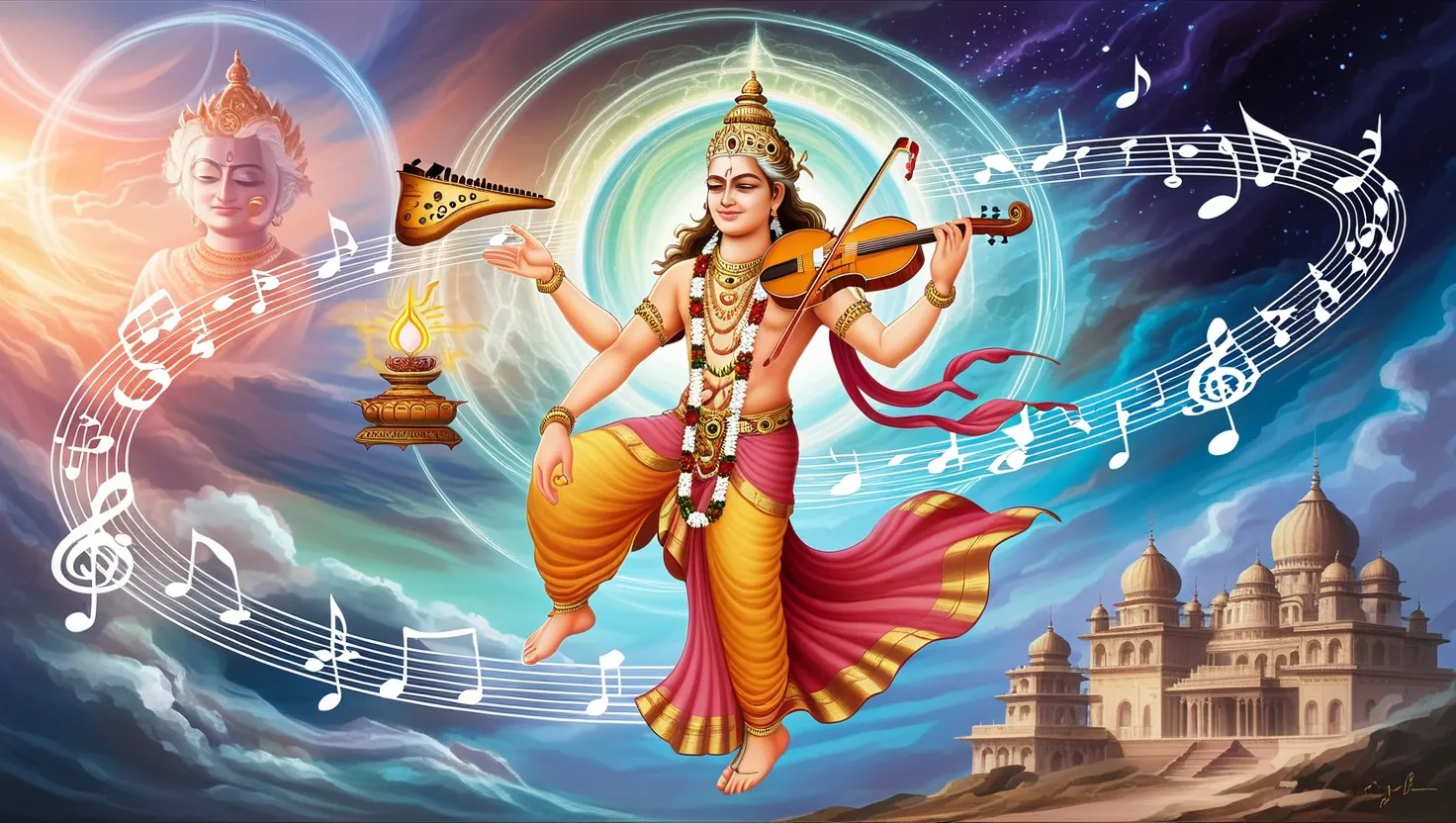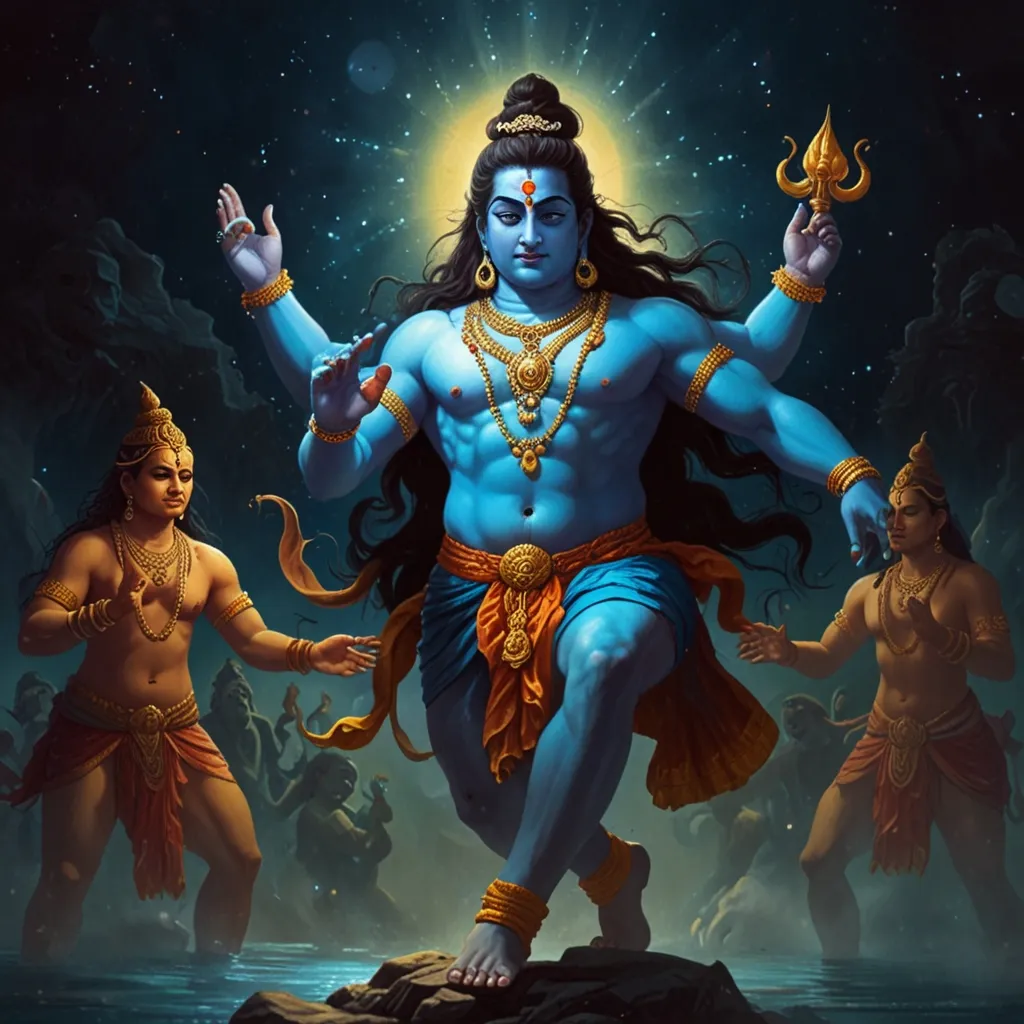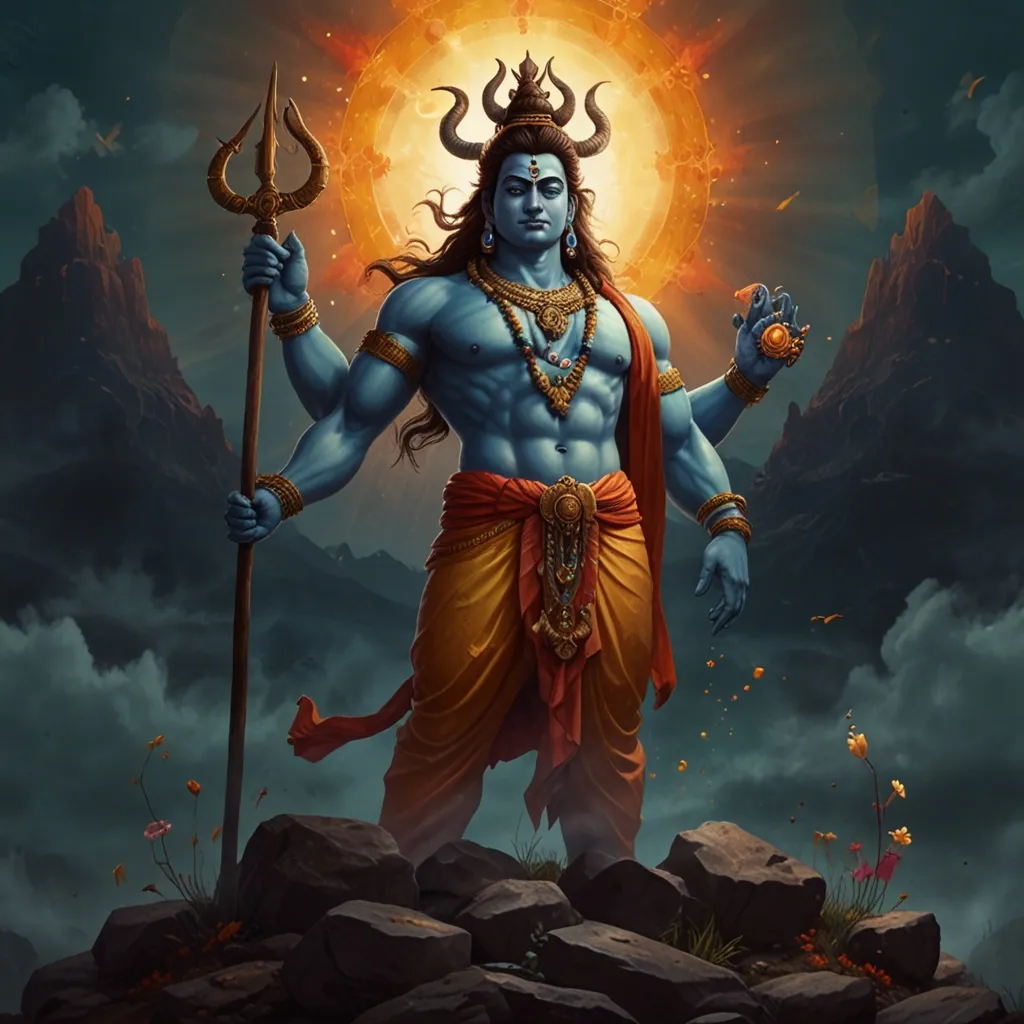If I’m sitting with you and trying to share the stories from the Narada Purana, I would want you to feel the movement, curiosity, and playful spirit that fill the text. These aren’t just dry tales; they have layers and surprises, and even if you’re not familiar with ancient Indian scriptures, you can find something personal hidden within each journey.
Narada Muni isn’t your average sage. He’s known across worlds as a messenger, a seeker, and—sometimes—a bit of a troublemaker. Most people remember him for his musical devotion and his habit of traveling anywhere he pleases: the heavens, the earth, and even realms where demons rule. I find it fascinating how the Purana chooses to narrate many lessons through Narada’s journeys. Why not just have a sermon, or a tidy set of rules? The answer is simple: stories and travel bring life and variety to learning. Wisdom isn’t a thing to be picked up and put in a box; it spreads through conversations, through unexpected meetings, through movement itself.
Narada’s own beginning breaks all assumptions. He wasn’t born a divine messenger destined only for service. His first life was as a Gandharva, a celestial musician mostly interested in entertainment and pleasure. The switch happens when he’s cursed: stripped of his privilege, he’s forced into a humble birth, growing up around wisdom but working hard for it. Here’s something people miss: a curse in these stories isn’t always bad. It pushes the person to change. Narada’s curse becomes his blessing. Through deep meditation, he rises to supreme devotion. His story sets a quietly radical idea: if you’re stuck or punished, maybe it’s the universe giving you a shove to become something greater.
Narada’s journeys in the Purana are more than sightseeing. Each trip has a point, a question, or a challenge. Maybe you wonder, why do gods need news? Shouldn’t Krishna know when he’s about to be born? Why does Shiva need a warning about a new demon? Yet that’s the genius of these stories. Even in divine realms, timely communication matters. Cosmic events are connected by talk, not just blind fate. If you sit and think about it, Narada is really history’s first cosmic news reporter.
But what I love most is the delicate trouble Narada brings. Take the episode where he visits King Daksha’s assembly. Most everyone is there to celebrate Shiva, but Narada’s words stir up a storm. He likes to inspire young princes and even gods to give up their comfortable lives for meditation or service. Naturally, this upsets their families. Daksha himself curses Narada for disrupting the social order. It’s a tricky moment: is Narada wrong for pushing spirituality onto those who aren’t ready? Or is he right for nudging people toward higher values, even if it stings? Here, the Purana offers a subtle point: growth often begins in tension, never pure comfort.
“Not all those who wander are lost.” — J.R.R. Tolkien
Narada’s travel style is something I wish more leaders had. He adapts his method to whoever he meets. When he finds a grieving devotee, he brings comfort. Facing a proud king, he shifts to debate. With gods, he chooses curiosity, sometimes poking at their grand plans with simple questions. Narada, above all, tries to see what’s missing or needed in each moment. It teaches me that being wise isn’t about having answers; it’s about knowing which question, story, or advice to offer at the right time.
Have you thought about how knowledge moves through worlds? In Narada’s tales, it’s not just the events but the messenger who matters. Sometimes, the messenger’s quirks shape how a story unfolds. Even in our world, news filters through personalities and perspectives. Narada shows that the shape of wisdom depends on the shape of its traveler. Is there someone in your life who brings new ideas that change the mood or direction of a group?
Here’s an aspect often missed—Narada’s competitive side. He’s famous as a musician, constantly chanting the names of Vishnu and letting his veena echo through realms. But he isn’t the only sage making music. There are moments where Narada and other wise souls engage in contests, trying to outdo each other in devotion or skill. Occasionally, these sessions trigger rivalry, even petty jealousy. What comes out of these duels is not just entertainment. There are reminders everywhere: spiritual growth does not end in perfection, but in humility. Even a divine messenger must keep learning, sometimes through losing a musical contest or facing a sharp retort. It’s okay not to be the greatest, if you grow from each challenge.
“The greatest mistake you can make in life is to be continually fearing you will make one.” — Elbert Hubbard
Narada’s journeys never drift from his love for Vishnu. Each travel, each meeting, even the toughest episodes are wrapped in his endless chanting and song. His devotion isn’t frozen or private, but walking, living, and growing. No matter where he goes—abode of gods, demon kingdom, hermitage, or palace—his worship continues. It reminds me that spiritual connection does not depend on location or mood. If Narada can worship everywhere, so can we—while waiting for a bus, cooking a meal, or walking through busy streets.
The Narada Purana’s structure tells me something profound about learning. Spiritual wisdom, here, is alive. It isn’t static or lonely. It wanders. It detours. It chooses service over isolation, conversation over quiet meditation. Narada’s missions often link those who might never meet otherwise. He makes cosmic connections, introducing a humble sage to an anxious king, or alerting a busy god to something urgent. Maybe true learning is about making more connections, and less about staying in comfort zones.
Here’s a question for you: if you could go on a journey to share wisdom, whom would you visit first? Would you bring comfort, debate, or a clever solution? What would you carry as your token—like Narada’s lute—to stay connected to your highest intention?
It’s easy to picture Narada as a happy wanderer, flitting from world to world. But look deeper, and the stories reveal serious lessons about ego. In some accounts, Narada challenges gods with almost mischievous intent, asking awkward questions or testing their temper. These episodes become turning points, exposing the frailty of pride or the limits of power. When a king boasts, Narada suggests a challenge that exposes his weakness. When a god seems overconfident, Narada drops a riddle that leads to self-reflection. In every case, the lesson is clear: true wisdom prefers humility, not grandeur.
“The only true wisdom is in knowing you know nothing.” — Socrates
One part many forget is that Narada’s journeys aren’t just spiritual. They involve resolving real-life problems. Take his counsel to rulers facing invasions, or sages lost in meditation who need a reminder of worldly duties. He doesn’t shy away from conflicts. Sometimes, Narada brings hard truths, knowing that disruption can heal more than silence. His presence shakes the status quo, offering reality checks and gentle nudges toward better choices.
Would you let someone like Narada visit your home? Would you welcome a messenger who brings uncomfortable news but ensures progress? Or do you believe wisdom should always feel gentle and friendly?
With every journey in the Narada Purana, I sense another lesson: spirituality must remain open to change and challenge. Wisdom does not just flow downward from gods to mortals; sometimes it circles, reverses, and bursts into unexpected places. The Purana’s narrative style—using a messenger who is never still—argues that real insight comes from motion and interaction.
What I find most compelling is how Narada connects with everyone. He is not limited by tribe, religion, or status. He’s at home whether with demons, gods, ordinary people, devout sages, or confused kings. This open-door attitude sets a model: spiritual service means going where needed, adapting language and approach to suit the listener. Narada’s journeys encourage us to break barriers and seek wisdom in unlikely places.
His journeys also push back against the idea that spirituality is only about personal bliss. Through his connections, Narada solves cosmic issues, prevents disaster, and even brings lost souls together for bigger causes. He intervenes so history does not repeat itself, keeping balance and harmony in the universe. Do you see spiritual practice as only self- improvement, or can it also shape families, nations, and destinies?
“Service to others is the rent you pay for your room here on Earth.” — Muhammad Ali
The Narada Purana doesn’t just tell us what to think; it asks us how to live. The wandering sage is a living lesson: movement brings change, questions bring growth, and devotion links every action. Through Narada’s seven divine journeys, the Purana suggests that communication, service, and flexibility matter as much as meditation or ritual.
If you remember anything, let it be this: Narada’s life makes wisdom feel active—a web of relationships, choices, and solutions. Whether you’re seeking answers, recovering from setbacks, or challenging traditions, there’s space for you on this path. Try to be ready for the troublemaker, the questioner, and the gentle guide. Allow your life to hold a bit of Narada’s playful wisdom; who knows, maybe your journey will deliver messages the world needs to hear.






